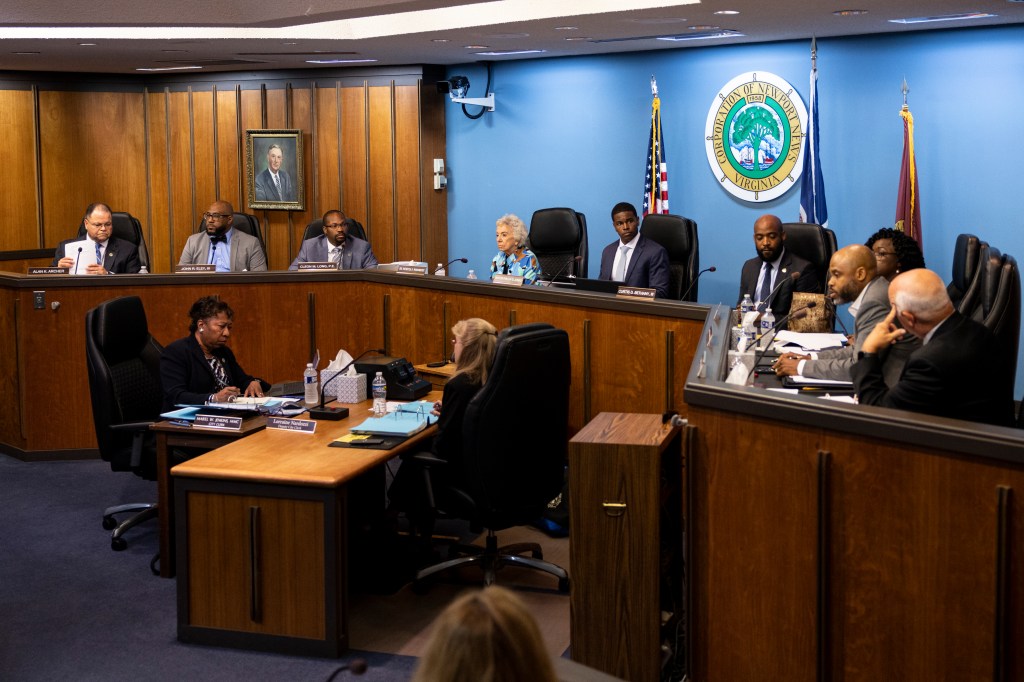City council members across Hampton Roads spent tens of thousands of dollars in public money last year on a variety of expenses, primarily travel, meals and lodging for meetings. Just to be clear, this is not illegal or shady, but it is useful information for the public evaluating both local government operations and the people in elected office.
Reporters for The Virginian-Pilot and Daily Press outlined in a recent article that the information was made possible by the Virginia Freedom of Information Act, which requires such data to be made available to the public. This is a small example of the value of this law and why government transparency is important to our communities and the health of our commonwealth.
The preamble to the state's FOIA law says, “Government business is not intended to be conducted in an atmosphere of secrecy because the public is always the beneficiary of actions taken at all levels of government.” ing. It's a bold declaration, and one that fits the birthplace of politicians like James Madison and Thomas Jefferson.
The primary authors of the Constitution and Bill of Rights (Madison) and the Declaration of Independence (Jefferson) understood that for the American experiment to succeed, government must be accountable to the people. As Alexander Hamilton wrote in The Federalist no. ”
This would mean, as Virginia's FOIA requires, that “all public records and meetings shall be deemed public unless an exemption is properly invoked.” The expectation is one of transparency, that governments should operate with full eyes on the people they serve, unless they can demonstrate why such information must be confidential. . Still, the law gives officials the option of disclosure if they choose.
In reality, this is often not the case. Rather, public officials use overbroad language in some exemptions to choose secrecy over transparency, and other tools, such as charging exorbitant fees for records, to impede public oversight. It happens all too often.
A recent article about spending by city council members in six local governments: Chesapeake, Hampton, Norfolk, Newport News, Portsmouth, and Virginia Beach is an example of how FOIA can benefit the public.
Reporters requested records of “meals, mileage, lodging, transportation, tickets to personal events, and other…related expenses” when officials travel on official business. The investigation found that Newport News officials paid “a $700 flight to Indiana to attend a Christopher Newport University basketball game, a $200-per-night hotel reservation, and approximately $1,100 in meals.” This comes after last year's report that a city-issued credit card was used for a number of suspicious expenses, including “deaths.'' ”
Should that data be made public? Absolutely. That's not to say that any of the recent reports indicate fraud or abuse, but rather information that residents of those communities should know about what's going on at City Hall.
Such information should also be available at the state level and should be available soon.
The General Assembly passed a bill this week that would allow state officials to more accurately review such spending. Senate Bill 340 “clarifies that the names of public officials, officers, and employees and descriptions of individual purchases that appear on purchase card statements or other payment records are not exempt from disclosure by the State Auditor.”
This will strengthen the oversight of spending by civil servants. After all, it's Virginians' money, and Virginians need to know what it's being spent on and by whom.
March 10-16 is Sunshine Week, which shines a spotlight on the importance of transparency in government and serves to remind the public why openness matters, in big and small ways. This is a worthy cause for people to advocate for, with the understanding that government must always be accountable and accessible to the public.


